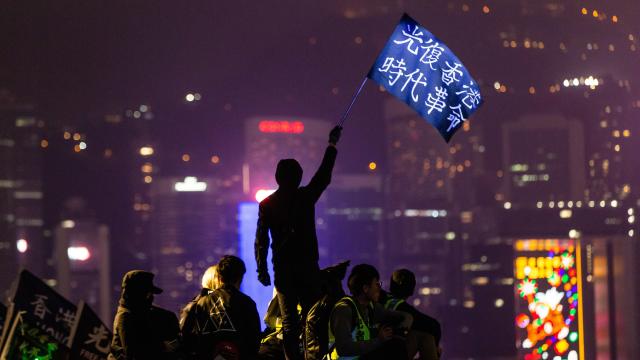China hacked into Apple’s Airdrop system on Monday allowing the government to identify the name, phone number, and email of the sender’s device, according to a post from a state-backed institution. Airdrop is a popular tool for pro-democracy activists in China to send anti-government messages during protests, but that capability now seems to be lost, as first reported by Bloomberg.
“After inspection, it was found that the fields related to the sender’s device name, email address, and mobile phone number were recorded in the form of hash values,” said the Beijing Institute in a translated blog post.
The state-backed institution says the method has helped the police identify multiple suspects, but did not clarify if any arrests were made. The Beijing Institute said the Airdrop cracking has “improved the efficiency and accuracy of case detection,” and reduced the spread of remarks the Chinese government deems a “bad influence.”
Gizmodo reached out to Apple to see if the company plans to patch this security breach. Apple did not immediately respond to Gizmodo’s request for comment.
The Chinese government has long had issues with protestors’ use of Apple’s Airdrop feature. During months of violent government protests in 2019, Bloomberg reported that Hong Kong activists were sharing messages and fliers in subway stations via Airdrop. Because Airdrop uses Bluetooth instead of Wifi, it was considered a fairly concealed mode of communication that centralized governments couldn’t track. That is no longer the case.
In 2022, Apple made a change to appease China’s government, limiting the window of time users can receive Airdrops from non-contacts to just 10 minutes. Previously, there was no time limit in China. But that wasn’t enough. China drafted legislation in June that would force Apple to include people’s real names when sending Airdrops, according to 9to5Mac. However, it seems China has foregone that legislation and found a way to reveal the names of protesting Airdroppers another way.
This is the latest sign of Apple butting heads with China’s Xi Jinping. Just a few months ago, China banned government officials from using iPhones at work. In the last year, the iPhone has lost its spot as the number one smartphone in the country. Apple typically responds promptly to breaches of its users’ security, but the dicey relationship with China could complicate the matter.
